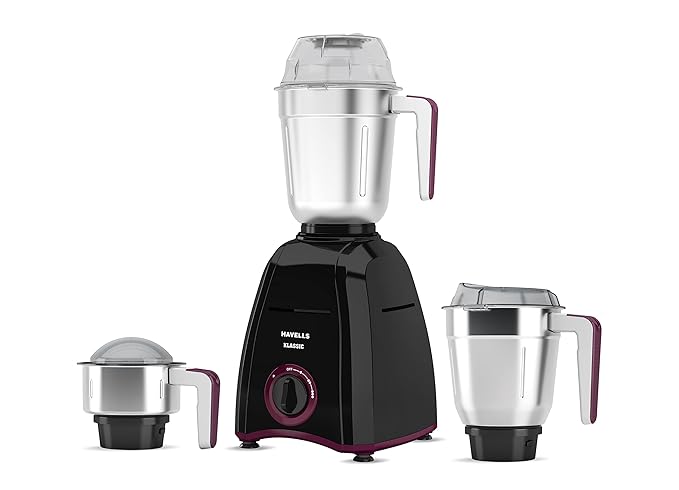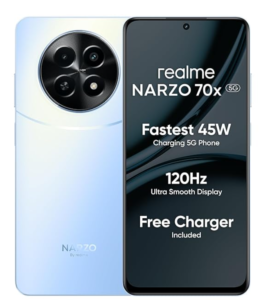best mixer grinder for home- Choosing the best mixture machine depends on your specific needs and requirements. There are various types of mixture machines designed for different purposes, such as concrete mixers, food mixers, and industrial mixers. Here are some considerations and recommendations for different types of mixture machines:
- Concrete Mixer:
- For construction purposes, a reliable and sturdy concrete mixer is essential. Brands like Belle, Kushlan, and Multiquip are known for producing durable and efficient concrete mixers. Consider factors like drum capacity, motor power, and portability based on your project requirements.
- Food Mixer:
- KitchenAid is a well-known and reputable brand for stand mixers in the kitchen. Their mixers are versatile and come with various attachments for different culinary tasks. If you are looking for a professional-grade food mixer, Hobart is another brand known for its high-quality and durable mixers.
- Industrial Mixer:
- The choice of an industrial mixer depends on the specific industry and application. Companies like SPX Flow, Chemineer, and Ross are known for manufacturing a range of industrial mixers suitable for various processes such as chemical mixing, pharmaceuticals, and food processing.
- Handheld Mixer:
- For smaller tasks in the kitchen, a handheld mixer is often more convenient. Cuisinart, Breville, and KitchenAid also offer reliable handheld mixers with different speed settings and attachments.
When choosing a mixture machine, consider factors such as build quality, capacity, power, speed settings, and additional features. Reading customer reviews and checking for warranties can also help you make an informed decision based on your specific needs. Additionally, it’s advisable to purchase from reputable retailers or directly from the manufacturers to ensure product authenticity and proper customer support.
1.What is Concrete Mixer?
A concrete mixer is a machine used to mix cement, sand, gravel, and water to form concrete, which is essential in construction projects for creating foundations, driveways, sidewalks, and other structures. Concrete mixers come in various types, sizes, and designs to cater to different construction needs. Here are some key aspects to consider when choosing a concrete mixer:
- Types of Concrete Mixers:
- Batch Concrete Mixers: These mixers produce one batch of concrete at a time. They are suitable for small to medium-sized construction projects.
- Continuous Mixers: These mixers continuously produce concrete as long as the materials are fed into the machine. They are often used for large construction projects.
- Drum Capacity:
- The drum capacity of a concrete mixer determines the maximum volume of concrete it can produce in one batch. Choose a mixer with a drum size that matches the scale of your construction project.
- Power Source:
- Concrete mixers can be powered by electricity, gasoline, or diesel. Consider the availability of power sources at your construction site and choose a mixer accordingly.
- Portability:
- If you need to move the concrete mixer around the construction site, consider its portability. Smaller, portable mixers with wheels are suitable for projects where mobility is essential.
- Mixer Design:
- Tilting Drum Mixers: The drum can be tilted to pour the concrete, making it easier to unload the mixture.
- Non-Tilting Drum Mixers: These mixers require the concrete to be poured out manually.
- Mixing Speed:
- The speed at which the drum rotates affects the mixing efficiency. Consider mixers with variable speed settings to handle different types of concrete mixes.
- Durability and Build Quality:
- Choose a concrete mixer with a sturdy construction and durable materials to withstand the demands of construction work.
- Brand and Reviews:
- Consider reputable brands known for manufacturing reliable and durable construction equipment. Reading customer reviews can provide insights into the performance of specific models.
Popular brands for concrete mixers include Belle, Multiquip, and Kushlan. Before purchasing a concrete mixer, assess your project requirements, the volume of concrete needed, and the specific features that will best suit your construction needs.
2.What is Food Mixer?
A food mixer, also known as a stand mixer or kitchen mixer, is a versatile kitchen appliance designed to assist in various food preparation tasks. It typically consists of a motor-driven base and a mixing bowl. The mixer comes with various attachments that can be used for mixing, beating, whipping, and kneading ingredients. Here are some key features and considerations when choosing a food mixer:
- Power and Capacity:
- Look for a mixer with a powerful motor, usually measured in watts. Higher wattage generally indicates better performance.
- Consider the capacity of the mixing bowl. Choose a size that suits the quantity of food you typically prepare.
- Speed Settings:
- Multiple speed settings allow you to adjust the mixing speed based on the type of ingredients and the task at hand. Look for a mixer with a variety of speed options.
- Attachments:
- Different attachments provide versatility. Common attachments include a flat beater for general mixing, a whisk for whipping, and a dough hook for kneading. Ensure that the mixer you choose comes with the attachments you need.
- Tilt-Head vs. Bowl-Lift Design:
- Tilt-head mixers have a head that tilts back for easier access to the bowl and attachment changes. Bowl-lift mixers have a stationary head and lift the bowl up to the attachments. Choose the design that is more convenient for you.
- Build Quality and Durability:
- Look for mixers made from durable materials. Stainless steel and die-cast metal constructions are often more robust and long-lasting.
- Brand and Reviews:
- Consider reputable brands known for their kitchen appliances. Read customer reviews to get insights into the performance and durability of the mixer.
- Size and Storage:
- Ensure that the mixer fits well in your kitchen and is easy to store when not in use.
Popular brands for food mixers include KitchenAid, Breville, Cuisinart, and Kenwood. KitchenAid, in particular, is well-regarded for its high-quality stand mixers with a wide range of attachments.
Before making a purchase, assess your specific needs, cooking habits, and the types of recipes you frequently prepare. This will help you choose a food mixer that best suits your requirements.
3.What is Industrial Mixer?
Industrial mixers are specialized machines designed for large-scale mixing, blending, and processing of materials in various industrial applications. These mixers are crucial in industries such as pharmaceuticals, chemicals, food and beverage, cosmetics, and more. Here are key considerations when it comes to industrial mixers:
- Type of Industrial Mixer:
- Batch Mixers: Used for mixing a specific quantity of material in a single batch.
- Continuous Mixers: Suitable for continuous production processes where materials are constantly fed into the mixer.
- Mixer Configuration:
- Agitators: Stir materials using blades or paddles.
- Impellers: Generate fluid motion for effective mixing.
- Ribbon or Paddle Mixers: Combine materials with ribbon-shaped or paddle-shaped agitators.
- Mixer Capacity:
- Consider the volume or capacity of the mixer to ensure it meets the production requirements of your industrial process.
- Material Compatibility:
- Ensure that the materials of construction are compatible with the substances being mixed to prevent corrosion or contamination.
- Power and Speed:
- Evaluate the power and speed capabilities of the mixer based on the viscosity and characteristics of the materials being processed.
- Process Control:
- Some industrial mixers come with advanced control systems for precise regulation of mixing parameters, temperature, and other variables.
- Hygiene and Cleanability:
- In industries like pharmaceuticals and food processing, it’s crucial to choose mixers that are easy to clean and meet sanitary standards.
- Durability and Build Quality:
- Industrial mixers need to withstand heavy-duty usage, so opt for robust and durable constructions.
- Brand Reputation:
- Choose mixers from reputable manufacturers with a history of producing reliable industrial equipment.
- Safety Features:
- Look for safety features such as emergency stop buttons, safety interlocks, and overload protection to ensure the well-being of operators and prevent accidents.
Popular types of industrial mixers include high-shear mixers, ribbon blenders, paddle mixers, planetary mixers, and more. Brands such as Ross, Chemineer, and SPX Flow are well-known for manufacturing high-quality industrial mixing equipment.
Before selecting an industrial mixer, carefully analyze your production requirements, the characteristics of the materials you’ll be processing, and any specific industry standards or regulations that apply to your operation. Consulting with experts in industrial processes may also be beneficial in making the right choice.
4.What is Handheld Mixer?
A handheld mixer, also known as a hand mixer or electric beater, is a kitchen appliance designed for lighter mixing and beating tasks. It is a convenient and versatile tool for home cooks and bakers. Here are some key features and considerations when it comes to handheld mixers:
- Power and Speed Settings:
- Handheld mixers typically come with variable speed settings, allowing you to adjust the mixing speed based on the ingredients and the task at hand. Higher wattage often indicates more powerful mixing capabilities.
- Attachments:
- Hand mixers usually come with various attachments such as beaters and dough hooks. Beaters are suitable for general mixing, while dough hooks are designed for kneading dough.
- Weight and Ergonomics:
- Consider the weight and design of the handheld mixer, especially if you’ll be using it for extended periods. A lightweight and ergonomically designed mixer can be more comfortable to handle.
- Corded vs. Cordless:
- Corded handheld mixers need to be plugged into an electrical outlet, offering consistent power. Cordless models are battery-powered, providing more flexibility in movement but may have limited runtime.
- Ease of Cleaning:
- Look for a handheld mixer with detachable and dishwasher-safe attachments for easy cleaning.
- Storage and Compact Design:
- Consider the storage space available in your kitchen. Hand mixers with a compact design and cord storage options are more convenient to store.
- Brand Reputation:
- Choose handheld mixers from reputable brands known for producing reliable kitchen appliances.
- Price:
- Handheld mixers are generally more affordable than stand mixers. Compare prices and features to find a model that fits your budget while meeting your mixing needs.
Popular brands for handheld mixers include KitchenAid, Cuisinart, Breville, and Hamilton Beach. When selecting a handheld mixer, think about the specific tasks you’ll be using it for, such as whipping cream, beating eggs, or mixing batters. Reading customer reviews can also provide insights into the performance and durability of specific models, best mixer grinder for home.
What is good Mixer for you?
Good mixer grinders are known for their quality and performance. When considering a good mixer, you may want to look for features such as:
- Motor Power: Check the power of the motor, which determines the efficiency of grinding and mixing tasks.
- Number of Jars: Different models come with varying numbers and types of jars for different purposes such as grinding, blending, and chutney making.
- Speed Settings: Having multiple speed settings allows you to control the mixing or grinding process based on the ingredients.
- Build Quality: Ensure that the mixer is made of durable materials for longevity.
- Safety Features: Look for safety features like overload protection and locking system for safe operation.
- Brand Reputation: Havells is generally known for producing reliable and high-quality home appliances, so considering the brand reputation can be a positive factor.
Before making a purchase, it’s a good idea to read customer reviews and compare different models within the Havells range to find one that suits your specific needs and preferences. Additionally, check for warranty information and after-sales service to ensure ongoing support in case of any issues.





“Nice work!”